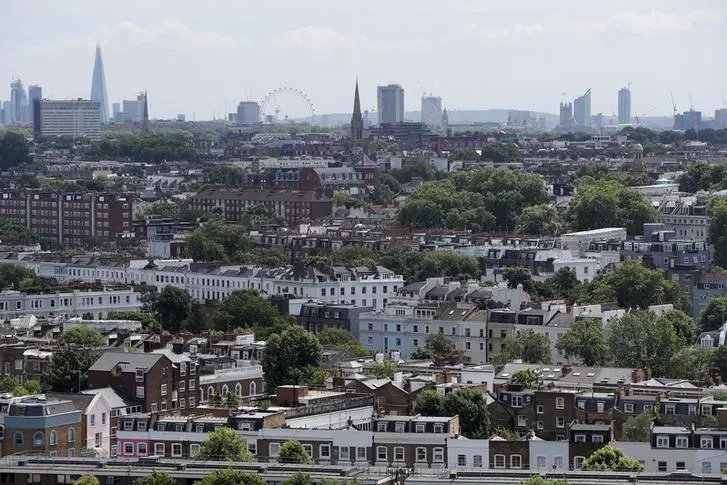PHOTO
Property firm British Land on Wednesday missed market expectations on a key metric gauging the value of its properties, as high interest rates weigh on the sector, sending its shares to a near seven-month low.
Interest rate rises and sluggish economic growth are posing fresh challenges for real estate firms struggling to recover from the pandemic.
The valuation of British Land's properties declined 12.3% year-on-year in the 12 months ended March 31, while net tangible assets - a key per-share measure that reflects the value of its buildings - fell 19.5% to 588 pence, below a company-compiled analysts' estimate of 598 pence.
Shares in the FTSE 100 firm fell as much as 5.1% to 358.7 pence, their lowest since Oct. 25.
The company, whose portfolio of mainly office spaces and retail parks includes London's Broadgate estate, swung to an annual loss of 1.04 billion pounds ($1.31 billion), versus a profit of 965 million pounds a year earlier.
London-headquartered British Land, which blends leisure, retail and hospitality facilities at its workspace-focused "Campus" developments, said it expected rental growth of 2-4% in both Campuses and retail parks in the next 12 months.
Campuses account for about two thirds of its overall properties, with over 90% of that located in central London.
Data from real estate services firm Savills this month showed that London topped the price correction for office valuations among major European markets.
"While we remain mindful of ongoing macroeconomic challenges, the upward yield pressure appears to be easing and there are early signs of yield compression for retail parks," CEO Simon Carter said in a statement.
RBC analysts said in a note the management's near-term outlook appeared more positive, specifically on retail parks.
On Tuesday, rival Landsec swung into an annual loss after it marked down its portfolio by 848 million pounds.
($1 = 0.7923 pounds) (Reporting by Aby Jose Koilparambil in Bengaluru; Editing by Sherry Jacob-Phillips and Mark Potter)





















